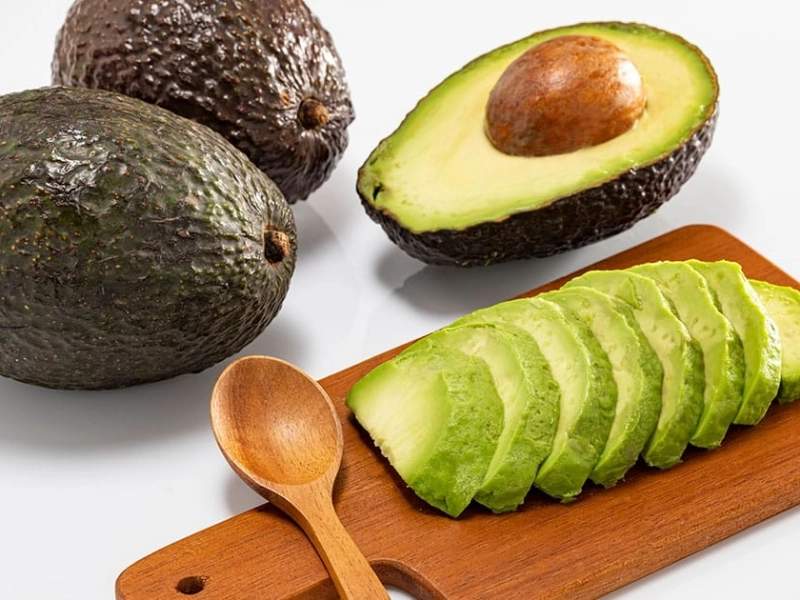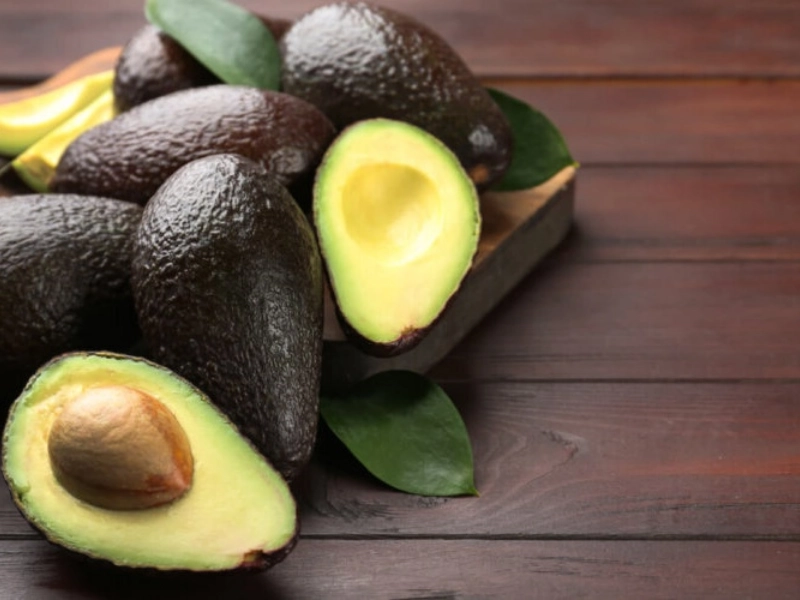Avocados are a good source of vitamins, minerals, and fats. However, eating too many of these foods can upset your digestive system, causing bloating and diarrhea. They also provide high amounts of potassium, which is important for a healthy heart and muscles. They are also high in vitamins C and E, which are good for your skin.

 Avocados are rich in heart-healthy fats, fiber, and folate. However, they are also rich in calories. Eating too many avocados can increase calorie consumption and lead to weight gain. Eating too many avocados may be harmful to your digestive system. This is due to the high natural sugar content of avocados, which can cause bloating and stomach bloating. The soluble fiber in avocados promotes bowel movements and prevents constipation and diarrhea. Avocados are also a great source of magnesium and potassium, two minerals that can lower your risk of developing heart disease. They are also a good source of vitamin C, vitamin B-6, vitamin E, and folate. The heart-healthy fats in avocados may lower cholesterol. They can attach to low-density lipoprotein (LDL) cholesterol and reduce its absorption in the blood. People with type 2 diabetes and heart disease will especially benefit.
Avocados are rich in heart-healthy fats, fiber, and folate. However, they are also rich in calories. Eating too many avocados can increase calorie consumption and lead to weight gain. Eating too many avocados may be harmful to your digestive system. This is due to the high natural sugar content of avocados, which can cause bloating and stomach bloating. The soluble fiber in avocados promotes bowel movements and prevents constipation and diarrhea. Avocados are also a great source of magnesium and potassium, two minerals that can lower your risk of developing heart disease. They are also a good source of vitamin C, vitamin B-6, vitamin E, and folate. The heart-healthy fats in avocados may lower cholesterol. They can attach to low-density lipoprotein (LDL) cholesterol and reduce its absorption in the blood. People with type 2 diabetes and heart disease will especially benefit.
 Avocados are rich in potassium, which is important for fluid balance and nervous impulse control. They also contain healthy monounsaturated fats, folate, magnesium, and vitamin K. All of these nutrients are linked to heart health and can reduce the odds of heart attack and stroke. Eating avocados can also help with weight loss, as they are a filling food. But the key is to choose ripe avocados that have a light sound when pressed lightly. One medium avocado contains 30 grams of fat, of which 4 are saturated fat. For others, especially those on a low-fat diet or with gastrointestinal disorders such as irritable bowel syndrome, it may be too much. It is recommended to eat avocados in moderation and get extra nutrients from other sources of protein, carbohydrates, and fat. Avocados are also rich in oligofructose (FODMAPs), so people on a low-FODMAP diet or with overgrown gut bacteria should reduce their intake as much as possible. In addition, they contain trace amounts of polyols, which can cause gas and bloating.
Avocados are rich in potassium, which is important for fluid balance and nervous impulse control. They also contain healthy monounsaturated fats, folate, magnesium, and vitamin K. All of these nutrients are linked to heart health and can reduce the odds of heart attack and stroke. Eating avocados can also help with weight loss, as they are a filling food. But the key is to choose ripe avocados that have a light sound when pressed lightly. One medium avocado contains 30 grams of fat, of which 4 are saturated fat. For others, especially those on a low-fat diet or with gastrointestinal disorders such as irritable bowel syndrome, it may be too much. It is recommended to eat avocados in moderation and get extra nutrients from other sources of protein, carbohydrates, and fat. Avocados are also rich in oligofructose (FODMAPs), so people on a low-FODMAP diet or with overgrown gut bacteria should reduce their intake as much as possible. In addition, they contain trace amounts of polyols, which can cause gas and bloating.
 Avocados are rich in Vitamin E, a powerful antioxidant that helps protect the heart. A high vitamin E diet can lower the risk of cancer and cardiovascular disease. It can also improve brain condition. Ephedrine in avocados prevents cognitive decline and helps protect brain cells by crossing the blood-brain barrier. Avocados are rich in vitamins, minerals, and fiber. Adding them to your diet can help lower cholesterol and promote a healthy diet. They may have a high fat content. Therefore, it is important to eat them in moderation.About 30 grams of saturated fat can be found in one avocado, or more than the recommended 13 grams per day. On the other hand, avocados also contain monounsaturated fats and other beneficial fats. A high-fat diet increases the risk of developing heart disease, but consuming healthy fats in moderate amounts can help lower blood pressure and cholesterol.
Avocados are rich in Vitamin E, a powerful antioxidant that helps protect the heart. A high vitamin E diet can lower the risk of cancer and cardiovascular disease. It can also improve brain condition. Ephedrine in avocados prevents cognitive decline and helps protect brain cells by crossing the blood-brain barrier. Avocados are rich in vitamins, minerals, and fiber. Adding them to your diet can help lower cholesterol and promote a healthy diet. They may have a high fat content. Therefore, it is important to eat them in moderation.About 30 grams of saturated fat can be found in one avocado, or more than the recommended 13 grams per day. On the other hand, avocados also contain monounsaturated fats and other beneficial fats. A high-fat diet increases the risk of developing heart disease, but consuming healthy fats in moderate amounts can help lower blood pressure and cholesterol.